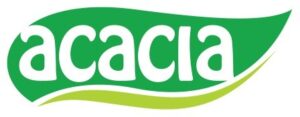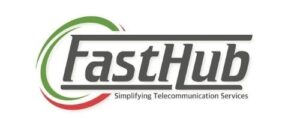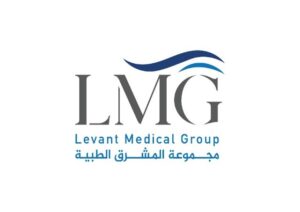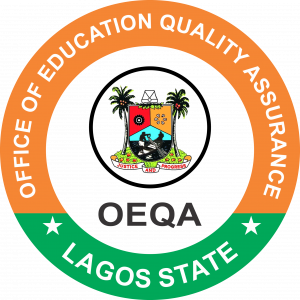ISO Certification in Kenya
ISO Certification in Kenya helps businesses meet international standards for quality, safety, environment, and efficiency. It improves customer trust, ensures regulatory compliance, and boosts competitiveness in both local and global markets. Companies can apply through accredited consultants to get certified in standards like ISO 9001, ISO 14001, ISO 45001, and more.

What Is ISO Certification and Why Should Kenyan Businesses Care Today?
ISO Certification not only assures the quality of products and services but also demonstrates an organization’s adherence to internationally recognized standards. With Competition increasing in Kenya and the government focusing on orderly, secure, and sustainable development, ISO Certification in Kenya can often serve as the final competitive advantage distinction that can improve efficiency and access to markets.
Whether you are located in the industrial corridors of Nairobi, the maritime gateways of Mombasa, the nascent service industry in Kisumu or the agriculture supply chains in Eldoret, obtaining ISO Certified in Kenya is the passport to expansion. It marks your business as prepared for the shift — embracing Kenya Vision 2030, ESG frameworks, and export market prospects for the region. There is a growing search in understanding how to get ISO in Kenya, the market demand is increasing rapidly as certified companies claim improved performance metrics.
How Can ISO Certification Help You Stand Out in a Crowded Kenyan Market?
In a country with more than 7.4 million registered businesses and growing, it is very easy to be overshadowed. ISO Certification in Kenya solves that challenge and assists your brand to showcase:
- Commitment to ensure safety and quality often results in improved customer satisfaction.
- Adherence to Kenyan and international policies lessen the likelihood of fines and guarantee smooth operations within the company.
- Strives to satisfy customer needs which likely increases their loyalty to the company and boosts repeat purchases.
- Efficient operations and proper management tend to minimize waste and maximize productivity.
- Credibility in public and private sector contracting, which is often a prerequisite to capturing useful contracts.
ISO Standards are recognized by both KEBS (Kenya Bureau of Standards) and international partners, meaning they can be used by Kenyan companies as a strategy to grow, standardize, and achieve success often in markets where certification is a requirement.
Top Cities in Kenya Leading ISO Certification Adoption for Business Growth
Kenya’s expanding metropolitan cities are scrambling to achieve ISO certification to accelerate for economic advancement and revenue:
- Nairobi: The city’s technology, financial services, education and healthcare sectors seem to be at the forefront and are often using ISO for improved service delivery and security measures.
- Mombasa: Transport, shipping, marine and tourism industries focus on ISO 14001, ISO 45001, and ISO 22000 for safety and sustainability.
- Kisumu: Service industries, agribusinesses, and NGOs align with ISO 9001 and ISO 27001 for operational efficiency and data protection.
- Eldoret: Agriculture and manufacturing adopt ISO 9001, ISO 22000, and ISO 14001 for exports and to foster sustainable development.
- Thika, Nakuru, Naivasha, Machakos: These manufacturing regions tend to standardize operations which aids in attaining local and international recognition while improving production consistency.
Pro Tip: Maxicert has expert ISO consultants in Nairobi based in each of these cities for faster, on-ground support and response, ensuring a streamlined certification process.
Request A Free Quote
- ISO 9001 Certification In Kenya
- ISO 14001 Certification In Kenya
- ISO 45001 Certification In Kenya
- ISO 27001 Certification In Kenya
- ISO 22000 Certification In Kenya
- ISO 17025 Certification In Kenya
- ISO 13485 Certification In Kenya
- OHSAS 18001 Certification In Kenya
- ISO 20000-1 Certification In Kenya
- ISO 50001 Certification In Kenya
- ISO 22301 Certification In Kenya
- SA 8000 Certification In Kenya
Which ISO Standards Are Most Relevant to Kenya’s Key Industries?
Kenya’s diverse economy requires specific ISO standards tailored to each sector. From quality and safety to sustainability and data protection, here’s how each ISO standard aligns with the country’s growing industry needs.
ISO Standard | Industry Focus | Relevance in Kenya |
ISO 9001 (Quality Management) | Manufacturing, Education, Retail | Widely adopted; ensures customer satisfaction and operational excellence. |
ISO 14001 (Environmental Management) | Construction, Mining, Agribusiness | Aligns with environmental regulations and sustainability goals. |
ISO 45001 (Occupational Health & Safety) | Construction, Energy, Transport | Reduces workplace accidents; enhances employee welfare. |
ISO 27001 (Information Security Management) | ICT, Banking, Insurance, Education | Protects sensitive data; builds trust in digital services. |
ISO 22000 (Food Safety Management) | Food processing, Hotels, Agriculture | Essential for consumer safety and export certification. |
ISO 13485 (Medical Devices Quality) | Hospitals, Clinics, Distributors | Ensures patient safety and regulatory compliance. |
ISO 21001 (Educational Organizations Management) | Schools, Colleges, Universities | Standardizes learning outcomes and institutional operations. |
ISO 50001 (Energy Management) | Manufacturing, Power, Real Estate | Reduces energy costs and improves sustainability. |
How ISO Certification Benefits Main Kenyan Industries?
ISO Certification benefits key Kenyan industries by improving quality, safety, and efficiency. In sectors like manufacturing, agriculture, healthcare, and ICT, it enhances compliance, boosts customer trust, and opens access to international markets. Standards like ISO 9001, ISO 22000, and ISO 27001 are vital for sustainable growth and global competitiveness.
- Manufacturing: In Thika’s food production to Athi River’s cement manufacturing, ISO 9001, ISO 45001, and ISO 14001 enable firms to sustain product quality, minimize downtime (which is often quantifiable), and maintain compliance with KEBS and other international standards. In need of ISO certification for factories in Kenya? Check out our manufacturing solutions here.
- Tech Focus and ICT: Nairobi continues to grow in their “Silicon Savannah”. Companies utilizing sensitive data and digital payments require strict ISO 27001 compliance for cybersecurity, protection of intellectual property, and building investor trust. This often results in increased client confidence and contract victories. For Nairobi based startups, discover ISO 27001 services. Read further.
- Healthcare and Pharmaceuticals: Hygiene, patient and equipment safety are vital especially for public and private facilities in Kenya. With ISO 13485 and ISO 9001 in Kenya certification, these hospitals and suppliers are certain to improve patient outcomes as well as their own safety records.
- Engineering and Construction: The ISO 45001 and 14001 certifications are critical for workers looking for support with safety and incident reduction during construction and engineering megaprojects like LAPSSET and Konza Technopolis. With these certifications, employers are guaranteed stakeholder trust and reduced workplace incidents.
- Agribusiness and Agriculture: Standards from the Gulf region and Europe are ISO 22000 and ISO 14001 compliant. Gaining access to these certifications allows the Kenyan economy to heavily rely on exports. These standards often need to be met before entering the market and can potentially allow businesses to charge higher prices for eco-friendly goods.
- Education and Training Institutions: Out of Nairobi, Kisumu, and other places, classrooms place their focus on ISO 21001. This is because with ISO, improvement in administrative control, teaching, performance tracking takes place, and often, students’ satisfaction and academic results also see a significant positive trend.
Why Industries Need ISO Certification in Kenya?
There are so many reasons to get ISO certification but lets know what are the main advantages to get ISO Certification In Kenya
Tender Eligibility
Getting an ISO certification in Kenya can qualify you for tender and agreements. It creates chances for new businesses and contracts.
Improved Efficiency
Implementing ISO standard can streamline your organization process and efficiency. This will result in overall growth in the organization.
Government Recognization
Being ISO certified company in Kenya, government will recognize such companies and it helpful to get government projects
Increases Trust
Implementing ISO certification in Kenya demonstrates commitment to global standards, boosting trust and confidence among clients, stakeholders, and business partners.
Global Market Access
Getting an ISO certificate helps businesses go global. It shows they follow international rules and standards. This can lead to new chances for business and partnerships.
Continuous Improvement
ISO standards promote a constant improvement culture. ISO Certification process boost innovation, tackle issues, and foster organizational growth gradually.
How to Get ISO Certified in Kenya: Step-by-Step with Maxicert
The process is simple when guided by experts. Maxicert makes it hassle-free:
- Gap Analysis: Assess your processes and find everything that needs to be done to bring them up to iso standards in an effective manner.
- System Documentation: Prepare the ISO required documents which include well defined work manuals, appropriate procedures, and policies.
- Training: Training must be done for all your staff so that everyone is aware of how to comply and contribute to quality.
- Internal Audit: Conduct proper internal audits and ensure that the systems are ready for external audit and all issues are identified beforehand.
- Certification Audit: Work smoothly with an accredited and recognized third party certification body and help them do their final audit.
- Post Certification Support: Guidance, help, and continual improvement on how better one can certify actively while maintaining certification is given.
Maxicert guarantees a seamless progression towards ISO Certification in Kenya — from the preliminary readiness evaluation to achieving international recognition.
How Long Does It Take to Get ISO Certified in Kenya?
The time it takes to certify varies with the size of your organization and existing preparedness, usually falling between 4 and 12 weeks. With minimal interruptions to business activities, consultants ensure that all compliance requirements are met within a set timeframe. If you would like more specific details regarding the timeline, reach out to us for tailored guidance.
Is ISO Certification Affordable for SMEs in Kenya
Not at all! Maxicert has strategically designed affordable ISO certification packages for:
- Small lean teams in Startups require fundamental credibility.
- Mid-sized companies with increasing demand, undergoing rapid growth that require expandable packages to accommodate growth.
- Large enterprises with complicated processes needing robust compliant solutions.
Bonus: Inquire about the “QuickCert” ISO certification bundles especially for SMEs seeking speedy certification..
Why Choose Maxicert as Your Trusted ISO Consultants in Kenya?
For us, selling certificates is secondary to developing systems that have a lasting impact and yield measurable results.
- Primary Focus: Certified ISO professionals with vast and successful multi sector experience in Kenya.
- Efficiency: All processes are promptly executed without omitting detail or diluting quality.
- Pricing Transparency: Pricing is detailed and precise with no hidden costs or unpleasant surprises.
- Local Support: Specialized consultants are permanently stationed in key cities within Kenya for prompt support.
- International Recognition: Your certification will be internationally accepted due to our partnerships with numerous certifying bodies.
Transformation, not verification, is what we offer businesses and enables them to enhance their performance analytics.
Which Type of Firms Have Already Adopted ISO Certification in Kenya?
Tech startups in Nairobi adopted ISO 27001 to build trust in their digital solutions.
Agro-exporters in Eldoret getting ISO 22000 to access lucrative EU markets.
Hospitals in Kisumu and Mombasa aligning with ISO 13485 to enhance patient safety and quality of care.
Universities in Nakuru and Nairobi certified with ISO 21001 to standardize educational excellence.
Real estate developers using ISO 9001 and ISO 14001 for efficient and environmentally responsible building design and construction.
What Happens After Your Business Gets ISO Certified?
Certification is only the first step in a smarter and more effective way of doing business:
- It is now easier for you to respond to tenders that continue to make ISO certification a prerequisite.
- Your customers place more trust in your processes and expect greater consistency in the quality you deliver.
- Internal teams work better together, within improved standards of efficiency that span across departments.
- You have continued compliance with KEBS Standards and slowly, with international standards.
We also assist you with:
- Surveillance audits and post each year to ensure there is no disruption to your certification status.
- Streamlined re-certification processes when you are getting close to the expiry of your certificate.
- Business and market leading proactive continuous improvement systems.
Need Help in Getting ISO Certification in Kenya?
Selecting the best ISO Consultants in Kenya will have a huge impact on your pathway to certification. So, what are you waiting for? If your business is located in Nairobi, looking to gain ISO Certification in Nairobi or you are working out of ISO Certification in Kisumu, our dedicated team of experts at Maxicert are here to help you in the journey towards ISO Certification.
We proudly have a reputation as one of the most reputable Best ISO Consultants in Kenya. We know pricing is always top of mind – this is why we are competitive and straightforward about ISO certification price in Kenya. No hidden fees – just real value specific to the needs of your business.
Let Maxicert be your trusted resource in your journey towards ISO certification in Kenya. Contact us today to find out how we can help your organization gain certification with confidence and credibility.
Conclusion
Of course. Whether you are an NGO in Kisumu working towards operational excellence, a growing Fintech in Nairobi cultivating trust in your cutting-edge solutions, or a key food processor in Naivasha looking to expand into international export, ISO Certification in Kenya is your strategic gateway to cultivate sustainable prospects and better your capabilities.
Call Maxicert if you seek ISO Certification in Kenya
Let’s make this official, shall we? Maxicert, an acclaimed ISO consultant in Kenya is willing to partner with you on your ISO journey from the very first query to attaining enduring global achievement.
Contact us now, without any obligations, for a complimentary consultation
Visit: www.maxicert.com
Maxicert — Your Committed Partner for ISO Certification in Kenya. Leading in Excellence and Sustainable Growth.
FAQ
What documents do I need for ISO certification in Kenya?
Well-documented procedures and policies, a detailed quality manual, and precise records that prove compliance with the chosen standards, alongside maintaining consistent compliance with the chosen ISO standards will be required.
What is the cost of ISO certification in Kenya?
The cost of services is dependent on the complexity of the ISO standards selected, as well as the size of your company. Maxicert Services strives to provide clearly defined packages that require no additional payments beyond what is specified, ensuring that clients clearly understand what payment entails.
What is the frequency of renewing my ISO certificate?
An ISO certificate typically requires maintenance renewal every 3 years. This is done to ensure that the certificate’s relevance is sustained, however, there are also annual surveillance audits done within the three-year period to ensure that the maintained certified status is upheld.
Is it possible for small-sized businesses in Kenya to receive ISO certification?
Definitely! Maxicert puts forth diverse options that can be tailored to best suit the needs of different clients. Our packages are availed at different price points to specifically enable Kenyan SMEs to gain world-wide recognition and access new prospects.
What is the duration of the certification process?
Depending on the ISO standard that is best, relative to your organization, the stature of the organization, as well as their readiness, the certification process in Kenya typically ranges within the 4-12 week mark.
Client Testimonials
What Our Clients Say About Us?
We are trusted by thousands of clients belonging from technology, manufacturing, healthcare and various sectors








Our overall experience with Maxicert was satisfied. The audit and consulting part was handled carefully, we fulfilled our client requirement of ISO 27001 hassle free.
Kevin Santiago BDM – Clarks Outsourcing, PhilippinesTimely response and knowledge of ISO standards can be seen together in the team of Maxicert, we grow because of the service providers like Maxicert.
Samuel Christopher Quality Assurance Head – OEQA, NigeriaWe did Food safety certification with Maxicert, the service was extraordinary and their consultant had good experience of the subject.
Mr. Venkatesh Production Manager - Acacia Foods and Beverages, ZambiaWe engaged a consultant of Maxicert for our business certification, we now have a well-designed and organized department procedures and we rectify our errors through internal audits regularly.
Abdullah Al Rayes Managing Director – TCS, BahrainTechnical expertise by the team of Maxicert helped us achieving our ISO 13485 certificates, we now proudly say that we have achieved our target, all thanks to the team.
Nady Boustany CEO – LMG, IraqMaxiCert's approach to meet our needs proved instrumental in facilitating a seamless transition throughout the entire ISO certification process for us. Their training sessions are so much helpful.
Ms. Latifa Al Salem Investor portfolio – Ministry of Investment, Saudi ArabiaMaxicert is a one stop solution, we got trainings, documents, audit and certification at one place, they facilitated everything.
Ms. Mariam Chaggama VP – Fasthub, Tanzania



Their presence in Oman made us even better to accomplish our goal of achieving ISO certificates on time, we will definitely recommend their services.
Mr. Sailesh Mohanakrishnan Division Manager – Khimji Ramdas, Oman